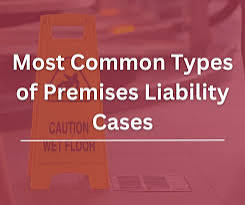Table of Contents
- What is Premises Liability?
- Common Types of Premises Liability Cases
- Factors That Determine Liability
- How an Ocala Attorney Can Help
- Why Local Expertise Matters
- Steps to Take Immediately After an Accident
- Conclusion: Stay Informed and Protected
What is Premises Liability?
Premises liability pertains to the legal obligation property owners hold to ensure their premises are safe for guests. This is essential for locations such as malls, parks, and even private residences in Ocala. The idea stems from the concept that landowners are responsible for caring for those who come onto their property. If someone is injured due to negligence, they might have the right to file a premises liability lawsuit. Understanding your rights can be complex, and consulting an Ocala premises liability attorney can provide valuable guidance on proceeding. Premises liability is a broad legal area encompassing various commercial and residential property incidents. Such incidents could include sliding on a damp supermarket floor lacking caution signs or stumbling over a bumpy pavement. Every situation has different legal consequences and demands specific evidence and professionals to establish negligence and liability successfully.
Common Types of Premises Liability Cases
Various scenarios can lead to premises liability claims. Some common examples include:
- Slip and fall accidents: These are among the most frequent premises liability cases, often occurring due to wet floors, uneven surfaces, or obstacles left in walkways. These occurrences have the potential to result in serious harm, like fractures, head injuries, and muscle strains.
- Inadequate security leading to assaults: Property owners may be liable if insufficient security measures lead to criminal activities such as assaults. Failure to install proper lighting, surveillance cameras, or security personnel in high-risk areas can create unsafe environments.
- Dog bites: Owners are required to have control over their pets, and they may be held accountable if their dogs cause harm to others. This is particularly important in areas open to the public where dogs are required to be leashed under the supervision of their owners, on leashes, and under the owner’s control.
- Swimming pool accidents: Failure to secure pools properly or provide adequate warnings can result in serious injuries. This includes ensuring that gates are locked and life-saving equipment is readily available.
- Exposure to toxic substances: This includes incidents involving hazardous materials that harm visitors. Property owners must ensure that chemicals or dangerous substances are stored safely and that warnings are posted.
Factors That Determine Liability
Several intricate elements come into play when determining liability in premises liability cases. These key factors include:
- The visitor’s legal status categorizes the visitor as an invitee, licensee, or trespasser. The level of duty owed varies for each category. Guests are owed a significant level of care because they are usually on the premises for mutual benefit, like shoppers in a retail outlet.
- The property owner’s actions: Whether the owner took reasonable steps to ensure safety or neglected to address known hazards. This includes regular maintenance, repairs, and prompt responses to potential dangers.
- The condition of the property: The general upkeep and potential hazards present on the premises at the time of the incident. Poor maintenance records can heavily influence the outcome of a liability case.
- The foreseeability of the accident: The property owner could reasonably foresee the risk that led to the injury. If similar incidents had occurred previously, the property owner might be expected to take preventive measures.
How an Ocala Attorney Can Help
Consulting with a local attorney can be immensely beneficial if you’re involved in a premises liability case in Ocala. Experienced attorneys can assist with collecting evidence, bargaining with insurance firms, and serving as your legal representation in court if needed. Employing a lawyer can make the difference between a favorable agreement and a drawn-out court fight.
Why Local Expertise Matters
Ocala is unique in its regulations and community standards, making local expertise invaluable. An attorney familiar with Ocala’s legal environment can offer tailored advice that aligns with regional specifics, increasing the likelihood of a successful claim. Local attorneys understand the specific state and municipal laws and have valuable connections and insights into court procedures and local insurance practices.
Steps to Take Immediately After an Accident
If you get hurt on another person’s property, quickly take these steps to protect yourself and your legal rights:
- Seek immediate medical attention: Your health is the priority. Prompt medical care also provides documentation of your injuries.
- Report the incident: Immediately inform the property owner or manager about the accident. An official report creates an initial event record, which can be crucial if discrepancies arise later.
- Document the scene: Take photos or videos of the location and conditions contributing to your injury. Capture potential hazards such as spills, broken railings, or poor lighting.
- Gather contact information: Collect the names and contact details of any witnesses supporting your version of events. Eyewitness testimony can be invaluable in corroborating your account of the incident.
- Consult with a premises liability attorney: Seek legal counsel immediately to understand your rights and legal options. A lawyer can assist you in navigating the intricate legal system to increase your chances of obtaining higher compensation.
Conclusion: Stay Informed and Protected
Navigating premises liability issues requires a practical understanding of legal principles, quick action after an accident, and expert legal guidance. Awareness of your rights and the steps to take can help ensure you’re adequately compensated for any injuries sustained due to another’s negligence. Being proactive and staying informed helps protect your rights and ensures property owners are responsible for keeping premises safe.





